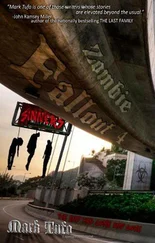Jim made us wince with awkwardness, but we winced for his sake. Joe Pope’s awkwardness caused an entirely different brand of wincing and it was hard to put a finger on. “‘He was not only awkwardness in himself,’” declared our own poetaster Hank Neary, “‘but the cause that was awkwardness in other men.’” And like always, we had no earthly clue what Hank was talking about. Unless he meant to say that Joe Pope’s presence made us feel awkward. That was very true. Joe felt no obligation to speak. He would greet and be greeted like a normal human being, but beyond that he remained brazenly, stoically silent. Even in a meeting or a conference call, the man could let long episodes of silence fill the room while he was thinking of what he wanted to say, without hemming and hawing nervously in order to fill the oppressive silence bearing down upon us all. Perhaps that could be called composure, but it made the rest of us uneasy, so much so that Hank, determined to get it right, returned with a second quote pulled from his infinite lode of worthless erudition — “‘He inspired uneasiness. That was it! Uneasiness! Not a definite mistrust — just uneasiness — nothing more.’” — and when that quote went from one of us to the other via e-mail, we congratulated Hank on finally saying something comprehensible. Uneasiness. That was it precisely.
He had a way of coming upon you suddenly. This happened a lot at print stations. One time, Tom Mota was standing at a print station when Joe sidled up next to him and said, “Morning.” Just at that moment, Tom had something awkward coming out of the color printer. Let’s just say it wasn’t exactly work-related. This was before the copy-code policy was implemented as part of the austerity measures, which also prevented Hank Neary from photocopying library books in the morning and reading the Xeroxed pages all day at his desk. Joe’s job no doubt was something official, and it was queued up behind Tom’s. Bad luck for Tom. So Tom said to him, “Are you just going to wait? You’re just going to wait there for your job to come out?” Joe’s response was to remain imperturbably silent. So Tom just came clean. “I have something coming out,” he said, “and be honest with you, Joe, I’d rather you not see it. It’s got some titties in it, and I know who you talk to,” he said. “And why do you always feel the need to rush over to the printer when your job is queued up behind all these other jobs, anyway?” he continued. “Why are you so eager? You do know it takes a while for these jobs to come out if they’re all queued up, don’t you?”
Who knows how Joe reacted to that. He was levels above Tom in the hierarchy but he probably suffered the man with more silence, patiently waiting for his job to come out. Maybe he tried to get a glimpse of whatever Tom was printing out, as Tom claimed, or maybe he kept his eyes straight ahead and thought, “Like I could give a good goddamn what this guy’s got printing out.” Either way he was probably inscrutable.
That was the word for him — inscrutable. His inscrutability created a pervasive uneasiness. Why did he have to be such a dull mystery? Nothing on his walls, nothing in his office but a bicycle. Which he locked. We heard it click every morning and tried not to take offense. Our opinion of Joe, he was too young to be inscrutable. If you’re thirty years old, you have interests. You make engagements with the world. Why was this guy always at his desk, surrounded by bare walls? “We have to show you this, this is our Joe Pope doll.” That’s probably how we’d explain Joe Pope to a new person. Not that we’ll ever hire someone new again. But if we did, we’d probably say, “We keep it in Karen Woo’s office. She hates Joe Pope. Come check it out. Now watch, it’s going to do a perfect imitation. Watch. Did you catch it?” “But it just sat there,” the new hire would say. “Exactly!” we’d cry. “Joe’s always at his desk. Now watch as he bends at the knees and pulls his chair in! Watch Joe Pope interrupt us over the cube wall! Pull the string and listen to Joe Pope say nothing! It’s the new Inscrutable-Action Joe Pope doll by Hasbro!”
WE HAD HAD A TOY client, a car client, a long-distance carrier, and a pet store chain. We did TV, print, direct mail, and Internet. We had a business-to-business division. We drank too much on the weekends. We had the great good fortune and shortcomings of character that marked every generation that had never seen war. If we had been recovering from the aftereffects of a significant campaign, we might have been grateful to be where we were. Eager, even. As it was, it was just us and our struggles to move up a notch chairwise. It was counting ceiling tiles in everyone’s office to determine who had the higher tile count. Sean Smith was in the first Gulf War but that hardly impressed us because all he did was drive a tank around a bunch of sand woefully devoid of enemy craft and when pressed, that was the extent of his recall. Frank Brizzolera might have seen World War II, but he died before we could ask him. We had one Vietnam vet but he never spoke of his experiences and quit within a year. Maybe he knew firsthand the blind jungle warfare we had learned about in school, had the sound of pitched battles in his head, and when he looked out his window at that proud parade of flags flying over the bridge across the Chicago River, he thought about particular sacrifices, men with names who had died, and said those names aloud to himself, and felt with palpable gratitude the simple luxury of returning to a chair in a building that was safe. Imagine the stories he might have told! Set in burning villages during darkest night — flares over riverbeds — choppers landing in rice paddies. We were always looking for better stories of more interesting lives unfolding anywhere but within the pages of an Office Depot catalog. But he never spoke of his experiences, and two months after he quit, no one could remember his name.
A better story than ours might be the one of two interoffice competitors, one male, one female, finding true love through rivalry in the workplace, written by our very own Don Blattner. Blattner was all Hollywood by way of Schaumburg, Illinois. He had another screenplay about a disaffected and cynical copywriter suffering ennui in the office setting while dreaming of becoming a famous screenwriter, which he claimed was not autobiographical. He was always talking about potential investors and wouldn’t let us read any of his screenplays unless we signed confidentiality agreements, as if we had positioned ourselves surreptitiously in these cornered lives so as to steal Blattner’s screenplays and whisk them off to Hollywood. Like Jim, he made us wince, especially on those occasions he called Robert De Niro “Bobby.” He studied the weekend box-office grosses very seriously. If a movie failed to perform as the industry expected, Blattner would come into your office on Monday morning carrying his Variety and say, “The boys at Miramax are going to be awfully disappointed by this.” It was such horseshit, yet we felt something had been lost the day he announced he was giving it up. “I gotta face it,” he declared in a resigned and unsentimental voice. “The workshops aren’t helping, the how-to books aren’t helping, and nobody’s optioning any of my shit.” We took back all our ridicule and practically begged the man to continue, but he remained firmly and pathetically committed to his sober-eyed conclusion that he would never be anything but a copywriter. Months passed before one of us experienced the relief of startling him at his desk again as he secretly tried to close out of his screenplay software. Hope had risen like a perennial once again.
Читать дальше












